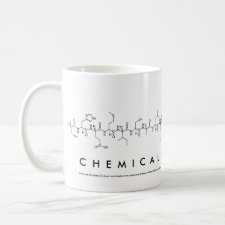
Authors: Hu ML, Jiang M, Wang P, Mei SR, Lin YF, Hu XZ, Shi Y, Lu B, Dai K
Article Title: Selective solid-phase extraction of tebuconazole in biological and environmental samples using molecularly imprinted polymers.
Publication date: 2007
Journal: Analytical and Bioanalytical Chemistry
Volume: 387
Issue: (3)
Page numbers: 1007-1016.
DOI: 10.1007/s00216-006-1004-2
Alternative URL: http://www.springerlink.com/content/v3h613181474h68j/
Abstract: Molecularly imprinted polymers (MIPs) were prepared by precipitation polymerization using tebuconazole (TBZ) as a template. Frontal chromatography and selectivity experiments were used to determine the binding capabilities and binding specificities of different MIPs. The polymer that had the highest binding selectivity and capability was used as the solid-phase extraction (SPE) sorbent for the direct extraction of TBZ from different biological and environmental samples (cabbage, pannage, shrimp, orange juice and tap water). The extraction protocol was optimized and the optimum conditions were: conditioning with 5 mL methanol:acetic acid (9:1), 5 mL methanol and 5 mL water respectively, loading with 5 mL aqueous samples, washing with 1.2 mL acetonitrile (ACN):phosphate buffer (5:5, pH3), and eluting with 3 mL methanol. The MIPs were able to selectively recognize, effectively trap and preconcentrate TBZ over a concentration range of 0.5–15 mol/L. The intraday and interday RSDs were less than 9.7% and 8.6%, respectively. The limit of quantification was 0.1 ́mol/L. Under optimum conditions, the MISPE recoveries of spiked cabbage, pannage, shrimp, orange juice and tap water were 62.3%, 75.8%, 71.6%, 89% and 93.9%, respectively. MISPE gave better HPLC separation efficiencies and higher recoveries than C18 SPE and strong cation exchange (SCX) SPE.
Template and target information: tebuconazole, TBZ
Author keywords: Molecularly imprinted polymers, frontal chromatography, Solid-phase extraction, Tebuconazole, biological and environmental samples



Join the Society for Molecular Imprinting

New items RSS feed
Sign-up for e-mail updates:
Choose between receiving an occasional newsletter or more frequent e-mail alerts.
Click here to go to the sign-up page.
Is your name elemental or peptidic? Enter your name and find out by clicking either of the buttons below!
Other products you may like:
 MIPdatabase
MIPdatabase









